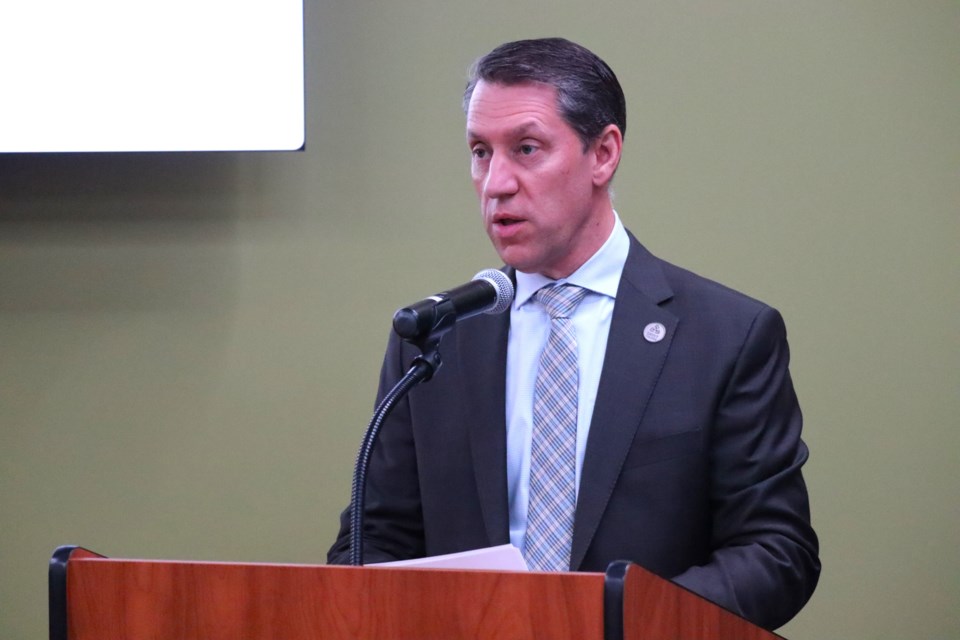Sault College is expressing concern over a two-year cap on international student admissions announced by the federal government.
The cap, introduced by Immigration Minister Marc Miller, will take effect beginning in the 2024-25 academic year and involves a 35 per cent overall reduction in new study visas and, in Ontario, a cap of 50 per cent or more.
Ottawa says it wants the provinces to improve a system that it says relies too heavily on international student tuition fees for revenue.
Those fees are much higher than fees for domestic students.
Locally, Sault College has approximately 2,300 students enrolled; approximately 1,000 of those are international students.
A release from the college on Jan. 22 says the federal government’s announcement “makes reckless changes to international student policy” and that Sault College is “potentially facing significant financial hardship.”
“The real impact is on international students attending our partner campus. We stand to lose a significant stream of revenue,” said David Orazietti, Sault College president, in an interview with SooToday.
That partner campus is TriOS College in Toronto.
"Students that come to the campus at Sault College will continue to be eligible for a post-graduate work permit, but students that study at our partner campus are no longer eligible for a post-graduate work permit, and because of that, students would be likely to choose to enrol elsewhere,” Orazietti said.
“They would no longer choose our partner, and the financial implication to the college is substantial because our partner campus generates about one third of all the revenue for our college.”
“The revenue that is provided through our public-private partnership (with TriOS College) is equivalent to approximately one third of our budget of $125 million,” Orazietti said.
Ottawa’s cap is considered to be worse for smaller, northern and rural colleges.
“We are very concerned about the financial implications for Sault College but we will be doing everything that we can to advocate for Sault College with the provincial government and the federal government in particular.”
An Ontario Blue-Ribbon Panel delivered a government-commissioned report in November 2023 urging the Ford government to end its post-secondary tuition freeze and increase per-student funding to its universities and colleges.
The Progressive Conservative government introduced a 10 per cent tuition cut in 2019 and did away with the former Liberal government's free tuition program for low- and middle-income students.
That freeze forced post-secondary institutions to increase their dependence on much higher international student tuition fees.
The Blue-Ribbon Panel report stated that ending the tuition freeze and boosting per-student funding would help colleges and universities.
“The recommendations that were made in the Blue-Ribbon Panel absolutely need to be implemented, and I would say based on the decision today, the investments that are recommended by the Blue-Ribbon Panel don’t go far enough. They need to go further. All of the colleges are advocating for greater investment in the post-secondary sector in Ontario,” Orazietti said.
“My conversations will include conversations with our mayor and council. Sault College is a very important economic driver in our community and its stability is important to the entire community. I will be reaching out to the mayor and council. I will be continuing to advocate provincially as well as federally. I will continue working with our MPP Ross Romano and our federal MP Terry Sheehan to impress on them the importance of investing in Sault College and the post-secondary sector.”
Orazietti said the federal government’s announcement of a cap on international students for at least the next two years and the corresponding drop in revenue could affect Sault College’s wish to construct a new residence building.
“I am optimistic that we will be able to find a way forward to make the needed investments on our campus," he said. "This announcement today has the effect of slowing down our ability to invest in our campus but we will work to ensure that we make the best investments possible to support our students.”
— SooToday




